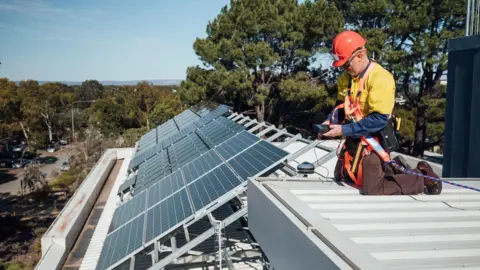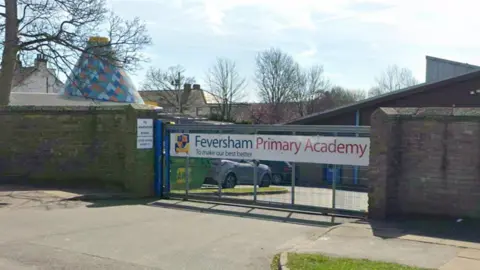School among first to benefit from solar scheme
 Getty Images
Getty ImagesA school in Bradford is one of the first in the country to install solar panels as part of a national push to save energy at schools and hospitals.
Feversham Primary Academy, in the Barkerend area of the city, is expected to save up to £13,000 a year on energy costs as a result, with the money being re-invested into the school.
The work was paid for through a £180m fund administered by the government's new state-owned energy company Great British Energy (GBE).
Energy Minister Michael Shanks said: "Solar panels on school rooftops mean energy bills are cut and money can be invested directly into improving young people's education while helping to tackle climate change for the next generation."
Bradford Council granted planning permission for the installation of a 54.74kWp solar array on the roof of the school in March.
Feversham is among 11 schools chosen for the first wave of the scheme, with the remaining schools due to be selected later this year.
It follows the government's announcement in March to award funding for schools and hospitals to install solar panels, the first major project for GBE.
 Google
GoogleGBE chair Juergen Maier said: "Within two months we are seeing schools supported by our scheme having solar panels installed so they can start reaping the rewards of clean energy – opening up the opportunity for more money to be spent on our children rather than energy bills."
At present only 20% of schools have solar panels installed, according to the Local Democracy Reporting Service.
Mr Maier said estimates suggested that on average a typical school could save up to £25,000 per year if they had solar panels with complementary technologies installed such as batteries.
Listen to highlights from West Yorkshire on BBC Sounds, catch up with the latest episode of Look North.
